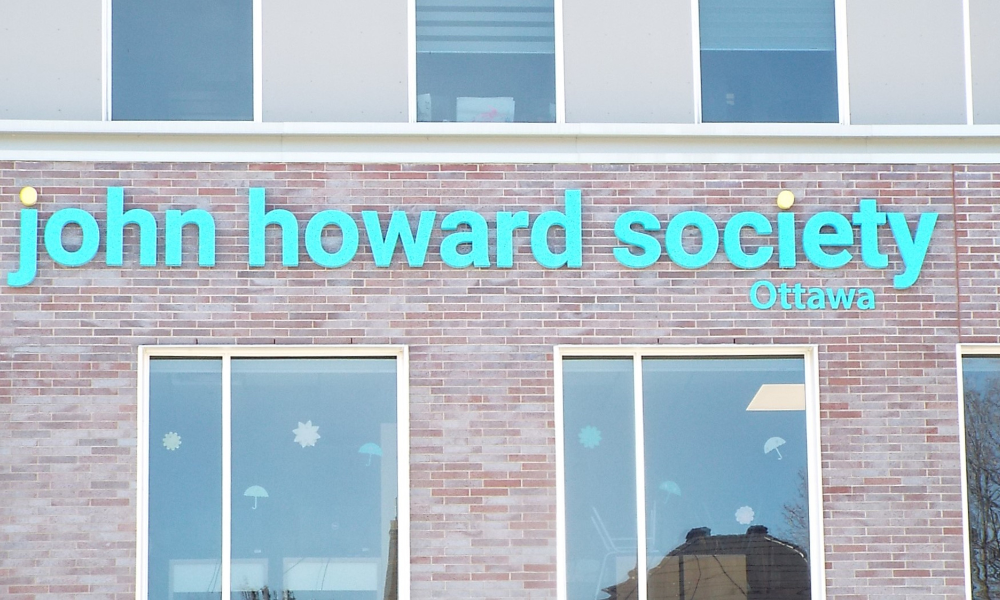
John Howard Society of Ontario’s paper notes rental market discrimination, income assistance gaps

More than 7,400 individuals incarcerated in Ontario’s jails left without a fixed address, comprising around 10 percent of the province’s unhoused population of 80,000 in 2023–24, revealed a new report by the John Howard Society of Ontario (JHSO).
The JHSO noted that this figure was likely significantly higher because Ontario’s correctional facilities recorded housing status upon entry but not upon release, by which point many had become homeless.
In its press release announcing the publication of its report titled “From Incarceration to Encampment,” the JHSO also noted that 80 percent of those jailed in Ontario were in remand custody and thus not convicted on any charge, with most released without convictions.
“The fact that so many people are leaving jail with nowhere to go points to a system that is not functioning as it should, and highlights the urgent need to rethink what’s required for lasting, systemic change,” said Christin Cullen, the JHSO’s chief executive officer, in the press release.
“With Ontario’s homelessness crisis spiralling out of control, the link between incarceration and homelessness can no longer be ignored,” Cullen added.
The JHSO’s new report emphasized how this link between imprisonment and homelessness disproportionately affected Indigenous, Black, and 2SLGBTQIA+ communities because of systemic and structural racism.
“Ontario’s homelessness crisis is now everywhere,” said Safiyah Husein, the JHSO’s policy director, in the press release. “It is a tragedy impacting every community.”
The report focused on three challenges and sought to offer clear and actionable solutions:
“When people don’t have anywhere to live, they are at an increased risk for all sorts of harms,” Cullen said in the press release. “We are calling on the province to implement meaningful, coordinated reforms.”
Husein added: “[T]he issues we’ve identified with our criminal justice system are ones that the province can fix immediately, giving people accused of crimes a pathway back to being fully contributing members of our society.”
“The evidence is clear: when people have a place to call home, they rebuild their lives, reconnect with their families, and contribute to their communities,” the report said. “Ensuring meaningful housing access for people with criminal records is not only the right thing to do — it is urgent, necessary, and in the best interest of all of us.”
According to the JHSO, the report reflects recent research, data from freedom-of-information requests, and insights from consultations with more than 40 legal professionals, advocates, service providers, and those who have experienced imprisonment and homelessness, among others.
“Being at a shelter or on the streets is just about the worst place somebody who's trying to get their life back on track could be,” one participant said in the JHSO’s press release.
The JHSO’s new initiative called “Re:thinking Justice” consists of three reports aiming to respond to the province’s most significant challenges with proposed criminal justice system reforms. “From Incarceration to Encampment” is the first part in the series.
The second part will focus on the employment prospects of those with criminal records. The JHSO – alongside the Odette School of Business, Saint Mary’s University, and St. Francis Xavier University – recently announced a research initiative geared toward fair and inclusive access to employment for job candidates with such records.
This project will include research with Canadian employers, targeted education on fair chance hiring for those with criminal records in general and Black and Indigenous persons in particular, and practical tools to advance inclusive workforce practices in various industries.
The third part of the series will centre on reforms to the remand or bail system.
The JHSO expressed gratitude to Maytree for funding the “Re:thinking Justice” series.
“Everyone has the right to a safe and stable place to live,” said Elizabeth McIsaac, Maytree president, in the press release. “This report outlines urgent, achievable solutions that would stop the cycle of incarceration and homelessness — and ensure that people leaving jail are met with support, not barriers.”